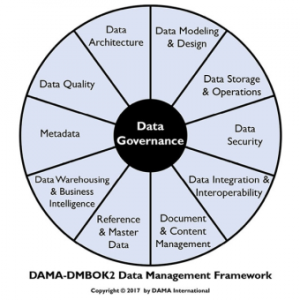Insights
I want to talk about insights into the field of data management, but also insights into how best to gain knowledge as an individual and as an organisation:

Insights
I want to talk about insights into the field of data management, but also insights into how best to gain knowledge as an individual and as an organisation:
Insights into Data Management
Data management is the foundation of everything you do with data. You process data in all your systems and if you want to report, if you want to optimise and innovate with data science, data is what you need.
Here are some insights regarding data management.

Data belongs to everyone and also to no one
I noticed from my first project as a document management project manager that some things belong to everyone and also to no one. Your document belongs to you, right? The data in the process you manage belongs to you, right? Without a clear management owner, whether document or data, we cannot share information, data reliably and efficiently.

Demand-driven data management
From a data management perspective, we have a clear view on how to handle data. At the same time, we also have to be realistic and know that with limited resources and people, we still have to support the business to achieve their goals.
Demand-driven data management is listening to what the business is worried about, translating this into pragmatic and feasible solutions regarding people, processes, systems and data, and creating value for the business.

Data only gets real value when it is automated
Very often, data is still used like the electronic card box from the 1980s. We use data to find something and do something with it. We have been data-driven for a few years now, but the real automation of data, with data is still in the future.
Only when data can really flow, without (or with very little) human intervention, will we really get the potential value out of data.

Data management is 10% technology, 20% processes and 70% people and culture
Typically, data management initiatives are driven by technology. There is nothing wrong with that, except if it is ‘forgotten’ that the processes and people and culture have to be included as well. If this does not happen, we will have a technologically beautiful solution without it being used in processes and by people.
Don’t make that mistake (again). The advantage is that you can also turn it around and start with the people and culture. With training and workshops, with education and awareness. You don’t need difficult technology for that, and you can start today.
A shared language
Understanding each other is difficult. People from the primary process understand IT people, but very difficult (and vice versa), people in data management don’t understand that people from the primary processes don’t handle data better. On top of that, we all use our own lingo.

This was reason for me to embrace the most widely used data management framework worldwide, DAMA DMBoK. Good, better, best, it can be used by any organisation and the advantage is that it uses 1 language that can be understood by all. On this basis, we can build more mature data management and use.
Insights into Effectiveness of Knowledge Transfer
I have done many projects from 6 months to several years. I have found that data management is too important to be outsourced (long-term) or filled by external sources. Certainly for getting started and gaining momentum, external ones can be of good help, but in the long term, data management is best filled in with your own people.

Training and education
Often, experienced in-house people will know too little about data management to make solid strides in this. My insight is that training your people is a hugely effective way of kicking data management into high gear.

Continuous learning
In my training sessions, I typically alternate deductive learning with inductive learning, in order to transfer knowledge better and more actively.
In practice, people encounter all kinds of situations they have never encountered before, and then it is nice to be able to spar, consult and learn with colleagues, peers, and experts. That too is learning, very practical, real cases that even the experts sometimes have to think about.

Getting on the same page
Communication is always an issue. Communication is talking to and listening to each other, but also using the same terminology and definitions.
I notice that after my basic data management training, organisations start to get the same framework of terms and they also understand each other better. The business, IT and data management professionals, together they will have to work to get data management and data usage to a higher maturity level.
